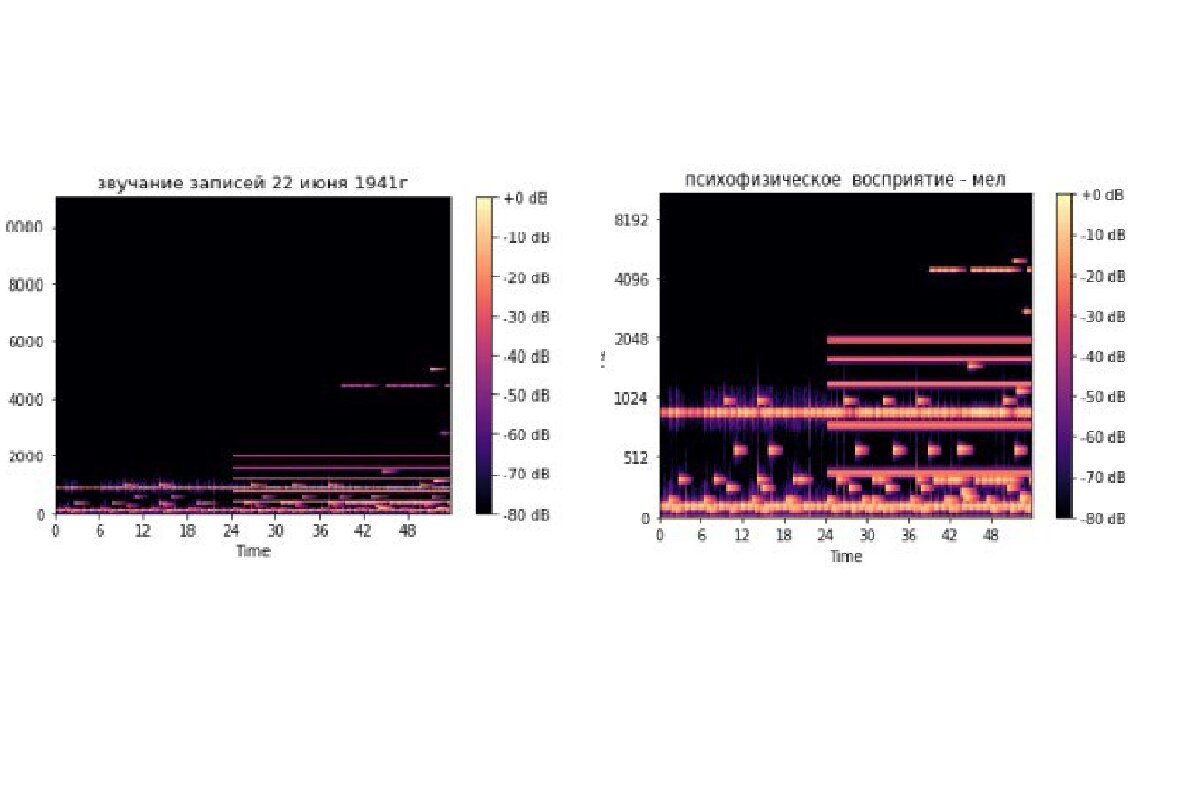Scholars from St Petersburg University compile a sound image of the first day of the Great Patriotic War
Experts from St Petersburg University have used digital algorithms to create a musical excerpt from the first day of the Great Patriotic War based on eyewitness diaries.

Data sonification is a relatively new discipline that deals with the conversion of various textual data into sound. Researchers use neural network algorithms to assign notes to certain symbols – letters and words. These notes can later be assembled into sound fragments or even musical compositions.
Today, this is not only a related field of science art, but also a way to expand the cognitive capabilities of people with disabilities. For example, people with various visual impairments can hear and learn about scientific achievements and breakthroughs. Additionally, converting data into sound sometimes makes it easier to analyse scientific data. For example, biologist Mark Temple from Western Sydney University has been able to sonify human DNA, making it easier to recognise repetitive nucleic acid sequences.
The ongoing research and practice seminar ‘Digital Philosophy Laboratory’ at St Petersburg University focuses on the study of philosophy using cutting-edge technologies. The project exists with the support of the Okhta Municipal Youth Centre (St Petersburg) and operates as part of the minor science event of St Petersburg University.
Specialists from the Digital Philosophy Laboratory at St Petersburg University were able to sonify a fragment of the first day of the Great Patriotic War using data from the diaries of eyewitnesses to the events.
‘We took data from 17 diaries of eyewitnesses of the first day of the Great Patriotic War from the project of the centre “Prozhito” (Lived Through). These are very dramatic diary memories of a day in which people did not yet fully understand what was happening. For example, many wrote about the warm summer they were looking forward to. We divided the information from the diaries into three groups: positive, negative, and neutral, which does not have a clear assessment in the text. Then, we converted them into sound using digital algorithms,’ said Dmitry Yarochkin , a doctoral student of St Petersburg University and coordinator of the Digital Philosophy Laboratory.
The University researchers extracted an array of data digitised in the JavaScript programming language and then transferred it to the algorithm for assessing the emotions of the text ‘Dostoevsky’. This algorithm converts data into a sequence of numbers, where numbers are assigned certain emotional colouring, from positive to negative. The resulting data – sequences of numbers – were uploaded to a service that assigns certain notes to the numbers, which the researchers then assembled into a musical excerpt.
According to the idea of the authors of the project, a person first listens to the received fragment, the result of the work done, and only then learns what data it is based on, which creates an additional emotional effect that is not based on expectations.
As Dmitry Yarochkin noted, any acute social information can be voiced in this way and give the listener an opportunity to get to know it in more detail and with a high degree of immersion.
St Petersburg University, the oldest university in Russia — was founded on 28 January (8 February) 1724. This is the day when Peter the Great issued a decree establishing the University and the Russian Academy of Sciences. Today, St Petersburg University is an internationally recognised centre for education, research and culture. In 2024, St Petersburg University will celebrate its 300th anniversary.
The plan of events during the celebration of the anniversary of the University was approved at the meeting of the Organising Committee for the celebration of St Petersburg University’s 300th anniversary. The meeting was chaired by Dmitry Chernyshenko, Deputy Prime Minister of the Russian Federation. Among the events are: the naming of a minor planet in honour of St Petersburg University; the issuance of bank cards with a special design; the creation of postage stamps dedicated to the history of the oldest university in Russia; and the branding of the aircraft of the Rossiya Airlines to name just a few.
By the decision of the Governor of St Petersburg Alexander Beglov, 2024 is a year of the 300th anniversary of St Petersburg University in St Petersburg. On the day of the University’s 300th anniversary torches will be lit on the Rostral Columns on the Spit of Vasilyevsky Island. St Petersburg University flags will be raised on the Palace Bridge. The city public transport will be decorated with the University’s symbols. New tourist maps will feature the locations of the University buildings, with thematic and historical materials about the University placed nearby. During St Petersburg’s City Day celebrations in May 2024, St Petersburg University will be a participating venue. The traditional ‘Scarlet Sails Festival’ will also be dedicated to the anniversaries of St Petersburg University and the Russian Academy of Sciences. Additionally, the University has launched a website dedicated to the upcoming holiday. The website contains information about outstanding University staff, students, and alumni; scientific achievements; and details of preparations for the anniversary

